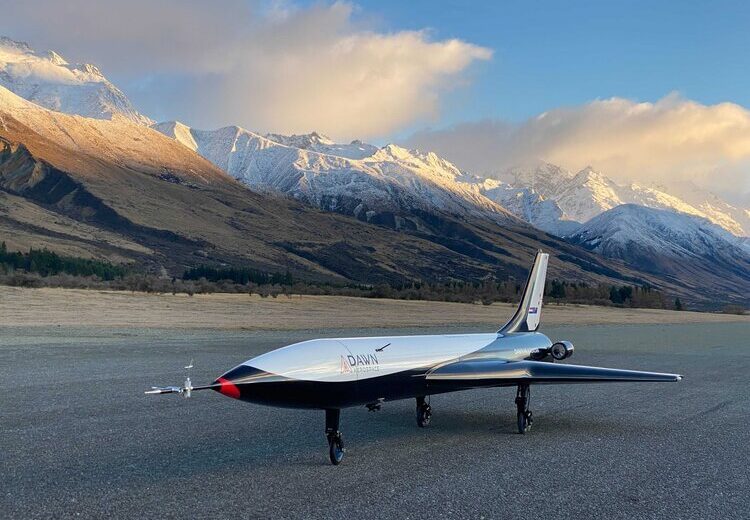Dawn Aerospace to begin testing with rocket engines

Dawn Aerospace is to begin testing its Mk-II Aurora using rocket engines following the successful completion of 48 flights over the last 13 months using surrogate jet engines.
Phase one demonstrated all non-rocket systems on the spaceplane such as low speed aerodynamic performance, pilot controllability, reliability and general airworthiness. The aircraft was flown as fast as 370 km/h and at 9000ft altitude.
CFO and Mk-II chief engineer, James Powell said: “This test phase has shown that the basic design is extremely capable, but above all, safe. It was also a key step to show that the team is ready to take on the challenge of rocket-powered flight.”
In Phase two the Mk-II Aurora will be fitted with a rocket motor which will allow for flights to over 100km altitude and 3500km/h. If achieved, it would be the first vehicle to ever to reach space twice in a day. “A Wright Brothers moment for reusable spaceflight” said Stefan Powell, Dawn Aerospace, CEO.
Once the Mk-II Aurora is proven under rocket power, a larger Mk-III vehicle will be built, with the capability to deliver a 250kg satellite into orbit.
“Rapid reusability is the key to cost effective spaceflight,” said Powell. “Operating under aviation law, and with a vehicle that is an aircraft first, and a rocket second, allows us to unlock the powers of fleet economics. We can replace an entire rocket factory with a few aircraft that operate daily”.
Phase one also demonstrated operational plus points on the aircraft such as rapid reusability (up to four flights in a day) and flights under aviation law.
“We are on the path to revolutionising how we access space. The ability to rapidly reuse a launch vehicle reduces costs by 90 per cent, hence it has always been the holy grail of affordable, frequent space flight,” said Powell.
The Mk-II rocket engine will use non-cryogenic fuels, hydrogen peroxide and kerosene, which are aircraft storable, unlike typical rocket fuels like liquid oxygen. The engine, which is in the final stages of qualification, is designed for rapid restarts without the replacement of igniters or other maintenance.






